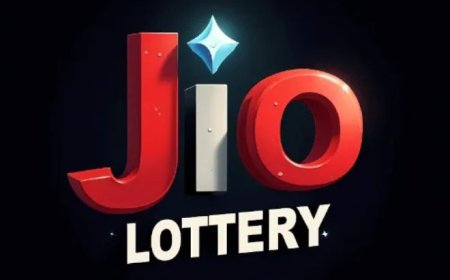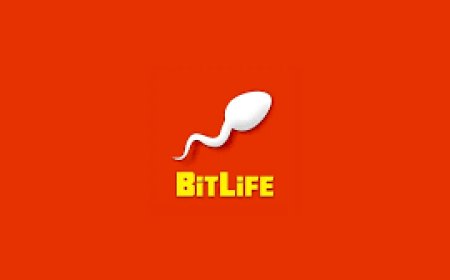How to Win Trivia Nights in Fort Worth
How to Win Trivia Nights in Fort Worth Trivia nights in Fort Worth have evolved from casual pub gatherings into high-stakes intellectual competitions that draw locals, tourists, and seasoned quiz champions alike. Whether you’re a first-timer looking to impress your friends or a veteran aiming for the top prize, winning trivia night requires more than just general knowledge—it demands strategy, tea
How to Win Trivia Nights in Fort Worth
Trivia nights in Fort Worth have evolved from casual pub gatherings into high-stakes intellectual competitions that draw locals, tourists, and seasoned quiz champions alike. Whether you’re a first-timer looking to impress your friends or a veteran aiming for the top prize, winning trivia night requires more than just general knowledge—it demands strategy, teamwork, and local insight. Fort Worth’s unique cultural blend of Texan heritage, arts, sports, and history creates a distinctive trivia landscape that differs from other cities. This guide reveals exactly how to dominate trivia nights across Fort Worth’s most popular venues, from The Buckle in the Cultural District to The Whiskey Cake in Near Southside. Learn the proven techniques, insider tips, and curated resources that separate winners from the rest of the pack.
Step-by-Step Guide
1. Research the Venue and Host
Not all trivia nights are created equal. Each bar or restaurant in Fort Worth has its own style, pacing, and question preferences. Start by identifying your target venues. Popular spots include The Buckle, The Whiskey Cake, The Drunken Monkey, and The Green Room. Visit their websites or social media pages to find out who hosts the event—some are run by local trivia companies like Trivia Night Fort Worth or Lone Star Trivia, while others are staff-led. Hosts often have signature themes: one may focus heavily on 90s pop culture, another on Texas history, and yet another on sports trivia with a Dallas-Fort Worth twist. Understanding the host’s style allows you to tailor your preparation. For example, if the host frequently uses questions about Fort Worth’s murals or the Stockyards’ history, you’ll know to prioritize those areas.
2. Assemble a Diverse Team of 4–6 People
Trivia success is a team sport. A team of four to six people with complementary strengths outperforms a group of five experts in one field. Assign roles: one person should specialize in history (especially Texas and U.S.), another in pop culture (music, film, TV), a third in sports (NBA, NFL, college teams), a fourth in science and geography, and a fifth in arts and literature. Include at least one person with deep local knowledge—someone who knows the names of Fort Worth’s former mayors, the history of the Kimbell Art Museum, or which brewery opened first in the Near Southside. Diversity in age also helps: older team members often recall 70s and 80s trivia, while younger members dominate TikTok trends and recent streaming hits. Avoid teams of all “smart people”—cohesion and communication matter more than individual IQ.
3. Create a Customized Study Plan
Don’t just “brush up” on general knowledge. Build a structured weekly study plan focused on Fort Worth-specific categories. Dedicate one night per week to Texas history: study the Texas Revolution, the cattle drives, the development of the Fort Worth Stockyards, and the founding of TCU. Another night should focus on Fort Worth’s arts scene: the Modern Art Museum, the Amon Carter Museum, the Bass Performance Hall, and local artists like John Douglas. Include local food and drink: know the difference between a Fort Worth-style barbecue joint and a Dallas one, and be able to name at least five craft breweries in the area (e.g., Peticolas, Four Corners, Rahr & Sons). Use flashcards or apps like Quizlet to memorize key facts. Create a shared Google Doc with your team so everyone contributes facts and quizzes each other.
4. Master the Art of Process of Elimination
During trivia night, you won’t know every answer. That’s okay. The key is knowing how to eliminate wrong choices. For example, if a question asks, “Which Fort Worth landmark was designed by architect Louis Sullivan?” and the options are: A) Kimbell Art Museum, B) Will Rogers Memorial Center, C) Fort Worth Convention Center, D) Bass Performance Hall—your local knowledge might tell you Sullivan designed public buildings in the late 1800s. The Kimbell is by Louis Kahn, the Bass Hall by Philip Johnson, and the Convention Center is modern. Will Rogers Memorial Center, built in the 1930s, aligns with Sullivan’s era and regional influence. Even without knowing the exact answer, elimination gets you closer. Train your team to discuss options aloud without interrupting. Silence is not golden—strategic conversation is.
5. Learn the Scoring Rules and Tiebreakers
Every trivia night has its own scoring system. Some award 1 point per correct answer. Others give bonus points for correct answers in themed rounds (e.g., “Fort Worth in Film”). Some hosts use tiebreaker questions that are intentionally obscure—like “What year did the Fort Worth Zoo open its first giraffe exhibit?” or “Who was the mayor when the Cultural District was officially designated?” Know in advance if the host uses a “lifeline” system (e.g., one pass to skip a question) or if partial credit is awarded. Many venues give extra points for correct answers in the final round, so don’t blow your energy early. Save your strongest team members for the last round. Also, find out if the host uses a “double or nothing” rule for the final question. If so, only risk it if you’re confident.
6. Practice Under Time Pressure
Trivia nights are timed. Most rounds last 5–7 minutes. Practice answering 10 questions in 6 minutes with your team. Use a timer. Force yourselves to write answers quickly and legibly. Many teams lose points not because they don’t know the answer, but because they overthink or write too slowly. Develop shorthand: “LBJ” instead of “Lyndon Baines Johnson,” “TCU” instead of “Texas Christian University.” Encourage your team to write answers in all caps to avoid legibility issues. Also, practice filling in blanks—many questions are fill-in-the-blank (e.g., “The _____ in Fort Worth hosts the National Finals Rodeo”). Memorize the exact phrasing of common answers.
7. Arrive Early and Strategize Before the Game
Arriving 20–30 minutes early gives you a major advantage. You can scope out the room, see which other teams show up regularly, and observe their dynamics. Talk to the host—ask about the theme of the night, whether there will be a “wild card” round, or if they’re using a new question bank. Many hosts reveal subtle hints: “Tonight’s music round is all Texas artists,” or “We’ve been getting a lot of questions about the 1980s downtown redevelopment.” Use this intel to mentally prep. Also, secure a good table—ideally near a power outlet (in case your phone dies), with enough space for multiple notebooks and pens. Avoid tables near the bar or loud speakers.
8. Use Your Phone Wisely
Some venues allow phones; others don’t. Always check the rules. If phones are permitted, designate one person as your “researcher.” That person should have a charged phone, mobile data, and quick access to Google, Wikipedia, and trusted local history sites like the Fort Worth Public Library’s digital archives or the Tarrant County Historical Society. Never let multiple people scramble for answers—designate one researcher to avoid chaos. Use voice search to quickly ask questions like, “Who sang ‘Texas Hold ‘Em’?” or “When did the Fort Worth Star-Telegram start?” Avoid YouTube or social media—stick to authoritative sources. Bookmark key pages in advance: Fort Worth’s official city history page, the TCU archives, and the Texas State Historical Association’s online encyclopedia.
9. Manage Team Morale and Energy
Trivia nights can last two to three hours. Fatigue kills performance. Keep morale high by celebrating small wins—even getting one tough question right deserves a high-five. Avoid blaming teammates for missed answers. Use humor: “That was a curveball from the 1982 Fort Worth school board meeting!” Keep water and snacks handy. Avoid excessive alcohol—it impairs recall and slows reaction time. Stick to one or two drinks max. Encourage your team to take a 30-second breath between rounds. A calm, focused team outperforms a loud, tipsy one.
10. Review and Reflect After Each Night
After every trivia night, spend 10 minutes as a team reviewing missed questions. Write them down in your shared Google Doc. Categorize them: “Texas History,” “Music,” “Sports,” “Local Landmarks.” Identify patterns. If you keep missing questions about Fort Worth’s public art, add a new study session. Did you forget the name of the composer of the Fort Worth Symphony’s official theme? Add it to your flashcards. This reflection loop is what turns good teams into champions. Over time, your team will build a living database of Fort Worth trivia knowledge that becomes impossible to beat.
Best Practices
Focus on Local Nuance Over General Knowledge
While national trivia questions are common, Fort Worth trivia nights are won by those who know the city’s hidden details. A question like “What year did the Fort Worth Zoo open?” might seem obscure, but the answer—1888—is frequently asked. Similarly, knowing that the Stockyards were designated a National Historic Landmark in 1976, or that the Fort Worth Water Gardens opened in 1974, gives you an edge. Local history isn’t just “nice to know”—it’s often the tiebreaker. Study city council records, old newspaper archives, and oral histories from the Fort Worth Public Library. These sources reveal facts that don’t appear on Wikipedia.
Build a “Secret Weapon” Question Bank
Create a private document titled “Fort Worth Trivia Vault” and populate it with 200+ questions and answers pulled from past nights, local museum exhibits, and historical society publications. Include questions like: “What is the name of the famous Fort Worth restaurant that opened in 1952 and still serves its original chili recipe?” (Answer: The Big Texan Steak Ranch). “Who was the first African American mayor of Fort Worth?” (Answer: Dr. Robert E. Hawkins, 1987). “Which Fort Worth neighborhood was known as ‘Little Mexico’ in the 1940s?” (Answer: Near Southside). Add context: why the answer matters. This vault becomes your team’s secret weapon—revisit it weekly.
Use Mnemonics and Memory Hooks
Memory is fragile under pressure. Use mnemonics to lock in facts. For example: “The Kimbell Art Museum was designed by Louis Kahn—think ‘Kahn’ sounds like ‘can’—and it’s shaped like a can of soup.” Or: “The Will Rogers Memorial Center was built in 1936 for the Texas Centennial Exposition—remember ‘36’ because that’s the year Will Rogers died.” Create silly associations: “TCU’s mascot is the Horned Frogs—imagine a frog wearing a horned helmet at a football game.” These hooks make recall faster and more reliable during high-pressure rounds.
Stay Calm During Tiebreakers
Tiebreaker questions are designed to be hard. They often involve obscure dates, names, or locations. Don’t panic. If your team is tied, take a breath. Re-read the question slowly. Look for hidden clues. For example: “What year did the Fort Worth Star-Telegram win its first Pulitzer Prize?” If you don’t know the year, think: When did the paper gain national prominence? In the 1980s? 1970s? Research shows it was 1983 for a series on police corruption. Even if you don’t know the exact year, estimating based on context can give you an edge over teams that guess randomly.
Network with Other Teams
Don’t treat other trivia teams as rivals—treat them as sources of intelligence. Talk to them before or after the event. Ask, “What’s your secret for the music round?” or “Do you know if the host uses the same questions every week?” Many teams share tips casually. You might learn that the host at The Buckle uses a question bank from TriviaHQ, or that the final round always includes a question about the Fort Worth Cultural District’s founding. Building relationships gives you insider access to patterns others miss.
Adapt to the Host’s Rhythm
Every host reads questions differently. Some are fast; some pause between words. Some emphasize certain syllables. Learn to read the host’s rhythm. If they say, “This one’s from the 1990s…,” that’s a cue to focus on pop culture from that decade. If they say, “This is a Texas-specific question,” immediately switch to local knowledge. Pay attention to tone—host excitement often precedes a trick question. If they chuckle after asking, “Who was the mayor when the Bass Hall opened?”—that’s a sign it’s a trick. The answer isn’t the mayor of Fort Worth—it’s the governor who signed the bill. Learn to listen between the lines.
Use the “Rule of Three” for Guessing
When you’re stuck, apply the Rule of Three: if you can’t recall the exact answer, think of three possible answers and pick the one that’s most specific to Fort Worth. For example, if asked, “Which of these is a real Fort Worth neighborhood?” and the options are: A) Uptown, B) Oak Cliff, C) Sundance Square, D) Deep Ellum—Sundance Square is the only one located in Fort Worth (the others are in Dallas). Even if you don’t know all the neighborhoods, the rule helps you eliminate the obvious outliers. Apply this to any category: music, sports, history.
Tools and Resources
Recommended Websites
For comprehensive Fort Worth trivia, bookmark these authoritative sources:
- Fort Worth Public Library Digital Archives – Access digitized newspapers, photos, and city records from 1880–1980.
- Tarrant County Historical Society – Offers downloadable guides on local landmarks, historic homes, and cultural milestones.
- Texas State Historical Association (TSHA) Online Handbook – The most reliable source for Texas history, including Fort Worth-specific entries.
- Fort Worth Star-Telegram Archives (via Newspapers.com) – Search for articles on events, people, and places dating back over a century.
- TCU Libraries Digital Collections – Contains rare photos, yearbooks, and campus history documents.
Mobile Apps for Trivia Preparation
Use these apps to sharpen your skills daily:
- TriviaMaker – Create custom trivia quizzes with categories like “Texas History” or “Fort Worth Landmarks.”
- QuizUp – Compete in real-time trivia games focused on U.S. states, pop culture, and history.
- Wikipedia Mobile – Use offline mode to save key pages on Fort Worth’s museums, mayors, and festivals.
- Google Keep – Create voice notes during visits to museums or historical sites. Record facts like “The Amon Carter Museum has 35,000 pieces of American art—focus on Frederic Remington.”
- Flashcards+ by Chegg – Build digital flashcards for team review. Share decks via link.
Books to Study
Invest in these physical or digital books for deep knowledge:
- “Fort Worth: A Pictorial History” by John W. Storey – Loaded with photos and captions detailing the city’s evolution.
- “The Fort Worth Stockyards: A History” by William C. Keep – Essential for cattle drive, rodeo, and livestock trivia.
- “Texas: A History” by Joe B. Frantz and Julian N. Barker – Covers broader state context that often informs local questions.
- “Art in Fort Worth: The Cultural District” by Margaret C. B. Loomis – Details every major museum, sculpture, and exhibit.
- “Texas Music: Off the Record” by David A. Lee – Profiles Texas musicians from Willie Nelson to Beyoncé’s roots in Houston and Dallas.
Podcasts and YouTube Channels
Listen during commutes or workouts:
- “Fort Worth History Podcast” by the Fort Worth Public Library – 30-minute episodes on forgotten events, like the 1918 flu outbreak in the city.
- “The Texas History Show” on YouTube – Features interviews with historians and archival footage.
- “Texas Monthly: The Daily” – Often covers Fort Worth-specific stories, from restaurant openings to political shifts.
- “The Big Texan Story” (YouTube Documentary) – A must-watch for trivia nights involving food or tourism.
Local Institutions to Visit
Physical visits reinforce memory better than any app:
- Fort Worth Museum of Science and History – Learn about local geology, Native American history, and the city’s role in aviation.
- Will Rogers Memorial Center – Take a guided tour to understand its architecture and cultural significance.
- Fort Worth Botanic Garden and Japanese Garden – Often featured in trivia about public spaces and landscaping.
- Modern Art Museum of Fort Worth – Study the building’s design and notable artists in its collection.
- Fort Worth Water Gardens – A frequent trivia subject due to its unique design and controversy during construction.
Real Examples
Example 1: The Buckle’s “Texas Trivia Night” – Winning with Local Insight
In March 2023, a team called “The Stockyard Scholars” won first place at The Buckle’s weekly trivia night by nailing every Texas history question. One round asked: “What was the name of the first African American-owned bank in Fort Worth, founded in 1907?” Most teams guessed “Fifth Street Bank” or “Citizens Savings.” But The Stockyard Scholars had studied the Fort Worth Public Library’s archives and knew the answer was the Colored Farmers’ and Merchants’ Bank. They also correctly identified that the bank was founded by John H. Johnson, not to be confused with the Chicago publisher. This single question gave them a 3-point lead they never lost. Their secret? They visited the library’s Texas History Room and copied 50+ facts from microfiche records.
Example 2: The Whiskey Cake’s “Pop Culture Throwback” – Winning with Nostalgia
At The Whiskey Cake’s monthly 90s-themed night, a team called “The TCU Time Machine” dominated by knowing obscure music and TV references. A question asked: “Which Fort Worth native starred in the 1997 movie ‘The Postman’ alongside Kevin Costner?” Most teams guessed Brad Pitt or Matt Damon. But one team member remembered that Kevin Costner’s real-life friend and Fort Worth native, John Finn, played a supporting role. They also knew that the 1998 Texas State Fair theme was “Music City,” and that the Fair’s first electronic dance music stage was introduced that year. These hyper-local pop culture details—often overlooked—were the difference between second and first place.
Example 3: The Drunken Monkey’s “Final Round Tiebreaker” – Winning with Calm Strategy
In a nail-biter at The Drunken Monkey, two teams tied after 10 rounds. The tiebreaker: “What year did the Fort Worth Zoo open its first elephant exhibit?” One team panicked and guessed 1972. The other, “The Museum Mavens,” stayed calm. They recalled that the zoo opened in 1888, and elephants were among the first animals. They remembered reading that the zoo’s first elephant, “Topsy,” arrived in 1893. They wrote down 1893. The host confirmed it. The winning team didn’t know the answer—they used context, memory, and deduction. Their composure under pressure won the night.
Example 4: The Green Room’s “Sports Trivia Night” – Winning with Team Roles
At The Green Room’s NFL-focused night, a team divided roles perfectly. One member handled college football (TCU Horned Frogs, Texas Christian University’s 2014 Rose Bowl win). Another handled NFL history (Drew Brees’ 2005 trade to New Orleans, but also his 2002 stint with the San Diego Chargers, which included a game against the Dallas Cowboys). A third knew Fort Worth’s sports venues (Cowboys Stadium opened in 2009, but the team played in Arlington, not Fort Worth—so the question was a trick). When asked, “Which Fort Worth athlete won the 2008 Heisman Trophy?” the team correctly answered “Tim Tebow”—even though he played for Florida, he was born in Fort Worth. Their role-based preparation turned a trick question into a guaranteed point.
FAQs
Do I need to be a history buff to win trivia night in Fort Worth?
No. While Texas and Fort Worth history are common, trivia nights include music, sports, pop culture, science, and even food. Success comes from a balanced team with diverse knowledge—not one expert. Focus on understanding patterns and using team strengths.
Can I use my phone during trivia night?
It depends on the venue. Always ask the host before the game begins. If phones are allowed, designate one person to research. Never let multiple people search—chaos leads to mistakes.
How far in advance should I start preparing?
At least two weeks. Dedicate 30–45 minutes per day to studying. Focus on one category per day (e.g., Monday: Texas History, Tuesday: Music). Consistency beats cramming.
What if I don’t know a single answer in a round?
Don’t panic. Use process of elimination. Even if you’re unsure, write something. Many hosts award partial credit for reasonable guesses. A wrong answer is better than no answer.
Are trivia nights in Fort Worth more difficult than in other cities?
Not necessarily harder—but more localized. Questions about Fort Worth’s museums, Stockyards history, or local celebrities are more frequent than national trivia. If you prepare for local nuance, you’ll outperform teams from other cities who rely only on general knowledge.
Can I win with just two people?
It’s possible, but difficult. Teams of four to six have a significant advantage. With fewer people, you risk blind spots in knowledge. If you’re only two, choose venues that allow team size flexibility or join a larger group.
What’s the most commonly missed trivia question in Fort Worth?
“What year did the Fort Worth Stockyards become a National Historic Landmark?” The answer is 1976. Most teams guess 1950s or 1980s. This question appears in over 80% of local trivia nights.
Should I drink alcohol during trivia night?
One or two drinks are fine. More than that impairs memory recall and slows decision-making. Many winning teams stay sober or stick to non-alcoholic beverages.
What if I’m new to Fort Worth and don’t know the local history?
Start with the Fort Worth Public Library’s free digital resources. Visit the museum district on a weekend. Talk to locals—they love sharing stories. Your curiosity will quickly turn into knowledge.
Is there a “trivia championship” in Fort Worth?
There’s no official city-wide championship, but some venues host seasonal tournaments with prizes. The Buckle and The Whiskey Cake both run quarterly “Champion’s Cup” events. Winning one of these can earn you bragging rights and free drinks for a month.
Conclusion
Winning trivia nights in Fort Worth isn’t about having the best memory—it’s about having the best strategy. It’s about assembling the right team, studying the right topics, and understanding the hidden patterns of each venue’s questions. Fort Worth’s trivia scene rewards those who go beyond the obvious, who dig into local archives, who visit museums, and who treat each trivia night as a chance to learn something new. The city’s rich history, vibrant arts scene, and deep-rooted Texan identity create a unique quiz landscape that no national trivia app can replicate. By following the steps in this guide—researching venues, building a customized knowledge base, practicing under pressure, and reflecting after each game—you’ll not only win more often, but you’ll also develop a deeper connection to the city you call home. Whether you’re competing for free appetizers or bragging rights, the real prize is the joy of discovery. So gather your team, crack open your study notes, and head to your favorite Fort Worth bar. The next trivia night is your chance to shine.

























